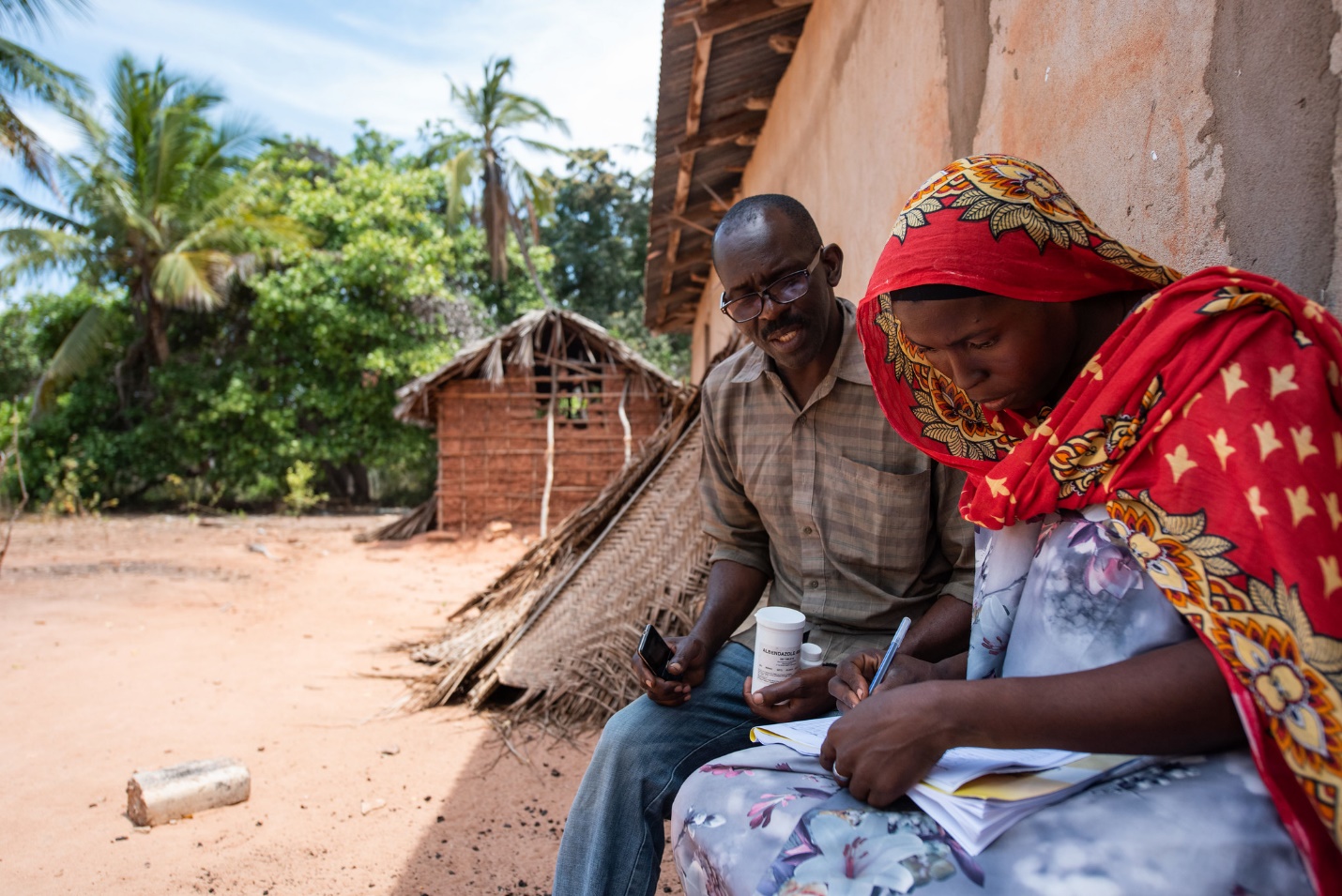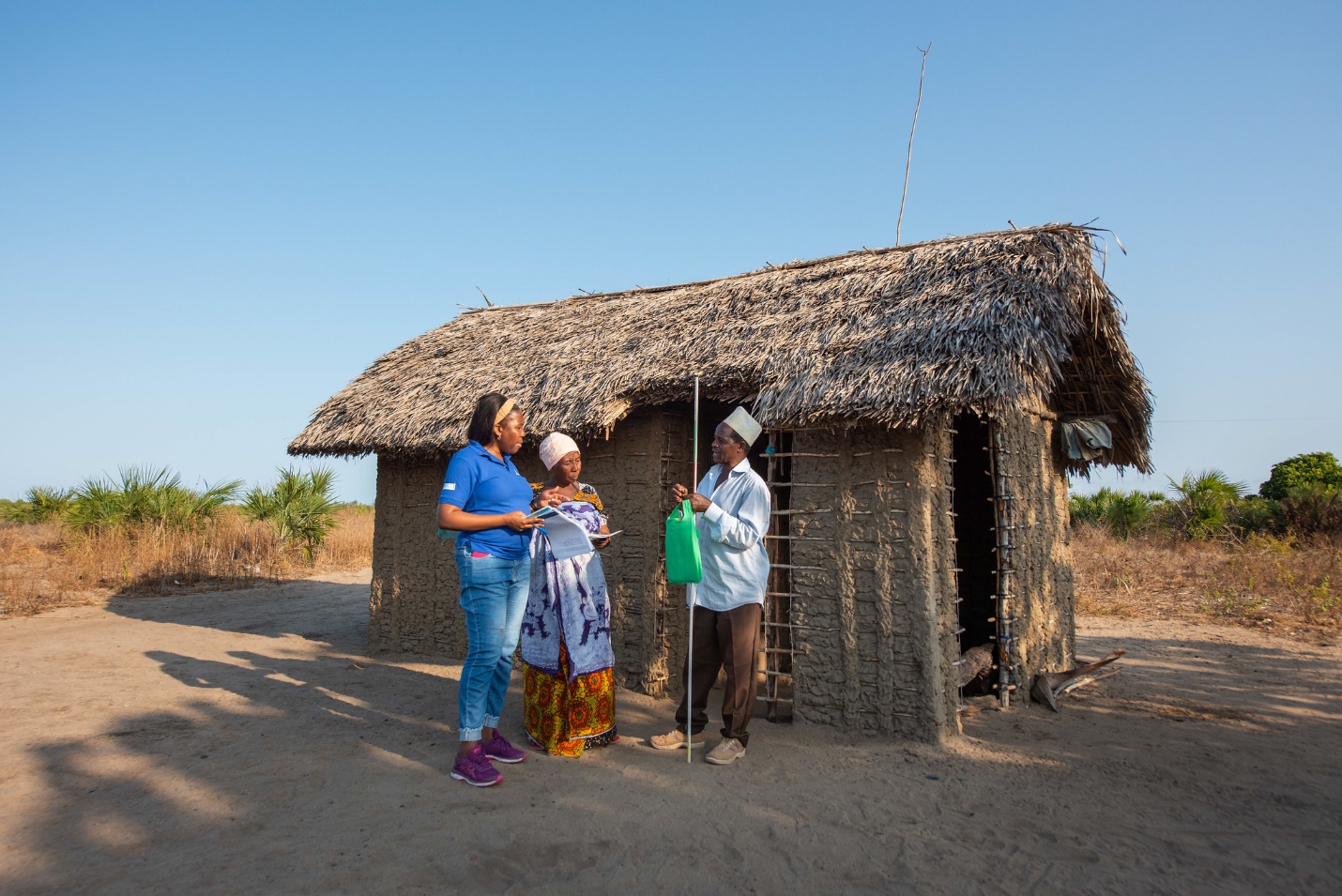By Sara Pappa, WI-HER Director, Program Implementation (Acting)
Data is at the core of everything we do. At WI-HER, the data we generate, analyze, and use is specific, contextual, and an important component to the decisions we make as a business and with our counterparts—including governments, programs, facilities, and communities.
The data we work with is often gender-related data that goes beyond sex-disaggregated data; as Dr. Stella Mwita, WI-HER Regional Advisor, Africa, explains, “[Gender statistics] goes beyond just numbers.” Dr. Stella, in her role supporting projects in Tanzania—covering neglected tropical diseases, conservation, and HIV/AIDS—utilizes qualitative gender-related data through gender assessments that inform programmatic approaches and the implementation of WI-HER’s iDARE methodology—an innovative approach that utilizes improvement science to drive locally-led solutions to development challenges. It is an iterative process that facilitates space for repeated, yet rapid, assessment, learning, and adaptation of ongoing work through the collection of qualitative and quantitative data.
Data has always been important to our work at WI-HER, and Dr. Stella uses gender-related data in her day-to-day decisions. However, her appreciation of data and statistics grew once she enrolled in the International Training Programme (ITP) Gender Statistics course, run by the Swedish International Development Cooperation Agency (Sida). The course aims to increase organizational capacity to use gender statistics in programs and policies to improve outcomes and achieve gender equality.
Supported by WI-HER, the course has made Dr. Stella think of new ways of approaching her work. For example, under USAID’s Act to End Neglected Tropical Diseases (NTDs) | East (Act | East) program, Dr. Stella supports program partners and government counterparts to implement iDARE in Tanzania. She focuses on districts with high rates of trachoma and onchocerciasis prevalence and low rates of acceptance, access, and uptake of preventive medications for those diseases. Dr. Stella and her implementing counterparts use iDARE tools to continuously collect and utilize data and statistics on gender-related gaps. Accurate and timely data on community needs and barriers is important to understand statistics as well as support locally-driven solutions to improve coverage of preventive medications—for example, by tailoring community dialogues and education sessions based on community concerns to better address misconceptions and gaps in understanding of the diseases.
Based on her gender statistics course learning, Dr. Stella has adapted iDARE coaching sessions with local teams. She has built in more opportunities for qualitative data collection in communities to inform and build tools to guide coaching sessions. With this data and statistics, iDARE teams are better equipped to adapt their approaches, and make more frequent checks on what is working and what is not working in their efforts to reduce disease prevalence through medication access and acceptance.
In Uganda, Emmanuel Ssegawa, WI-HER Technical Advisor and Uganda Country Representative, also thinks about his work differently. To Emmanuel, “…gender statistics gives us the real facets of gender issues in the communities that we serve…you get the real specifics of the issues. With gender statistics, you ask more questions. You ask their ‘whys and do comparisons between, for example, women who are literate and not, or men who are employed versus not. You also look at the age differences. It helps you better understand and come up with the appropriate solutions for the gaps you are trying to address.”
Emmanuel supports Act ? East in Uganda, where WI-HER collaborates with local partners to use iDARE in areas with low uptake of preventative medications for trachoma. This work largely takes place in the Karamoja region, where poverty, water scarcity, and insecurity are common, and gender- and equity-related barriers shape everyday life.
With the course, Emmanuel has re-shaped iDARE tools to better understand the communities he and his team and counterparts serve. Emmanuel has begun to work with district and community teams to adapt the tools to better capture the age, location, disability, and other identifying characteristics of the activity participants. By adding a few additional identifying characteristics to the data, Emmanuel and his team better understand the differential impacts of the program and, critically, the efforts of the community teams implementing iDARE—such as efforts to improve community hygiene, male engagement in household facial cleanliness, and improved access to information about trachoma and upcoming campaigns to distribute preventive medications.
Emmanuel’s and Dr. Stella’s course and work experience validate what we already know: data matters, and the more nuanced the data is through gender statistics, the better. Especially when implementing gender-sensitive approaches and activities, data that tells a story— about the stakeholder, the partner, the community, and the individuals—is data that can really inform and drive decisions and, ultimately, outcomes that are impactful and equitable.
—


Credit for both photos: RTI International/Roshni Lodhia







